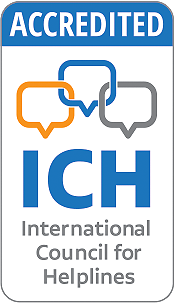Terrific Turnout for Stigma Free Atlantic
By Beth Wade, Public Relations Specialist
A strong, inspirational show of interest was apparent at the recent launch of Stigma Free Atlantic which drew nearly 125 participants. Local educators, religious leaders, and businesspeople joined allies and professionals in the fields of mental health and substance use during the Tuesday, October 4 event at The Carriage House, Galloway.
Community members learned more about Atlantic County’s new initiative and heard about ways to get involved with the campaign. After several speakers presented on the topic, participants received customized toolkits on thumb drives and picked up posters, pins, and lawn signs.
The day’s presenters included members of the Atlantic Stigma Free Collaborative, Maureen Kern, County Commissioner, and New Jersey Senator Vince Polistina. The keynote speaker was a Stigma Free leader from Passaic County, Rebekah Leon, who illustrated stigma through a story about her brother Terry, a Vietnam veteran who lived with PTSD, anxiety, depression and addiction. He never spoke to his family about his mental health struggles but shared openly about multiple diagnoses of cancer.
“Everyone rallied around and offered their help and support. People brought food and offered rides to the many appointments,” she recalled. “Well, when someone is struggling with a mental illness or substance use disorder, no one brings a casserole. We don’t hold fundraisers, offer to help with care and many times we don’t even talk about it.”
Collectively, the speakers built a case for how stigma prevents people from seeking help – shame, embarrassment, pride, fear, cultural differences, perceived cost, and worry about losing their job. Stigma exists despite research that shows trauma, environment, genetics and overwhelming stress can contribute to mental health and substance use disorders.
Rebekah noted the long list of musicians, athletes, actors, and politicians who have come forward to tell their story which works towards the goals of Stigma Free on a national level. On a local level, she described ongoing Stigma Free efforts in her region and gave concrete examples of ideas to inspire those in attendance.
She shared ideas about how to create partnerships to help with messaging and awareness. For example, her group made inroads with the schools by offering professional development training to teachers, which led to the development of classroom lessons given by members of Stigma Free Passaic. Reaching out to media is another way to help communicate messaging in broad strokes, she added.
Reducing stigma also comes in the form of simple gestures – wearing a Stigma Free t-shirt or using person-first language, for example saying “a person who has a substance use disorder” instead of “an addict.” Wording in signage at tabling events (she suggested “Wellness Resources”) also can make a difference in attracting attention as well as irresistible mascots, such as dogs, to welcome eventgoers.
Posting fliers and signage with the traditional Stigma Free colors – lime green, white, and black – is helpful to build a campaign, she suggested. Punctuating her point, Atlantic’s logo and multiple sample posters were displayed around the room.
Other ideas related to outreach included Public Service announcements, sponsoring a sports team, and hosting information and resource sessions for local groups, like clubs and service organizations. (See below for more strategies.)
“We are very pleased with the response we had for the launch of our Stigma Free Atlantic breakfast,” said Vicki Phillips, Executive Director of the Mental Health Association in Atlantic County and member of the Stigma Free Collaborative. “The excitement generated by those in attendance confirm that our local communities are ready to help erase the stigma associated with mental health and substance use disorders.”
More About How Stigma Free could look in Atlantic County
- Proclamations from municipal leaders for observances related to mental health and substance use
- Advocacy via legislators, policy makers who can make change in systems where discrimination, lack of access or lack of opportunity exists
- Mental Health First Aid Training, which is a course to learn how to recognize and intervene when someone is experiencing crisis
- Speakers, presentations, town hall meetings, forums, Lunch and Learn sessions in the workplace
- Certificates of appreciation for those who demonstrate support
- Sharing stories on social media to dispel stereotypes








